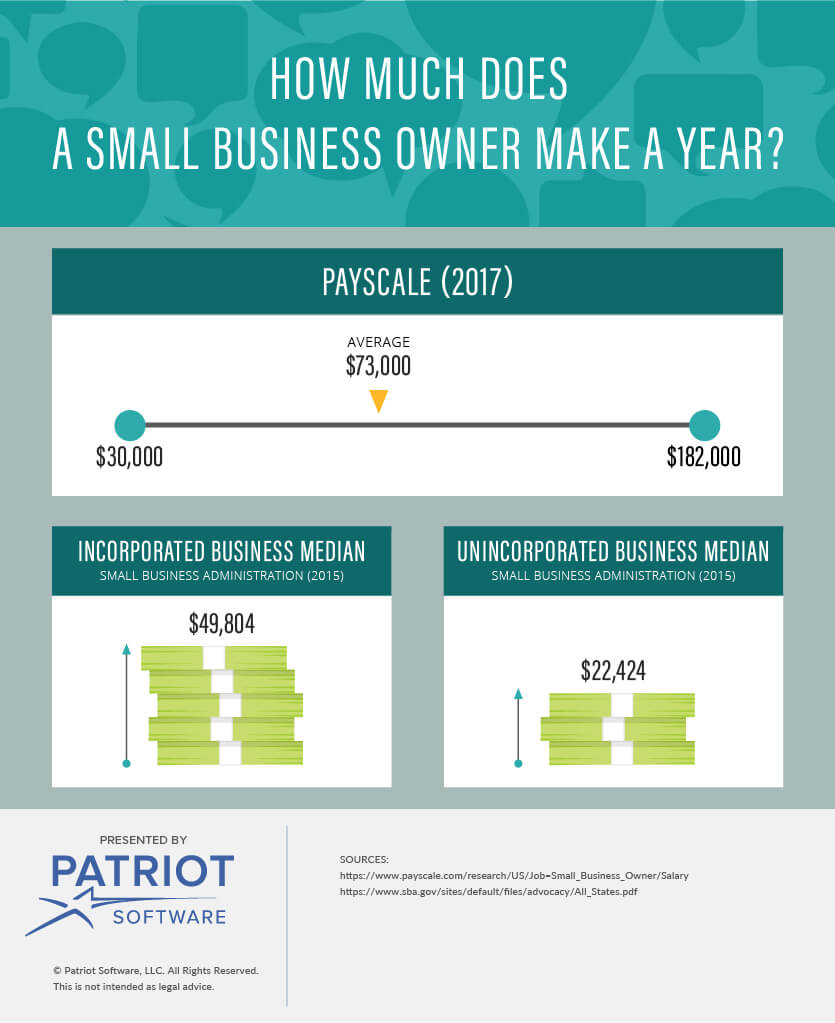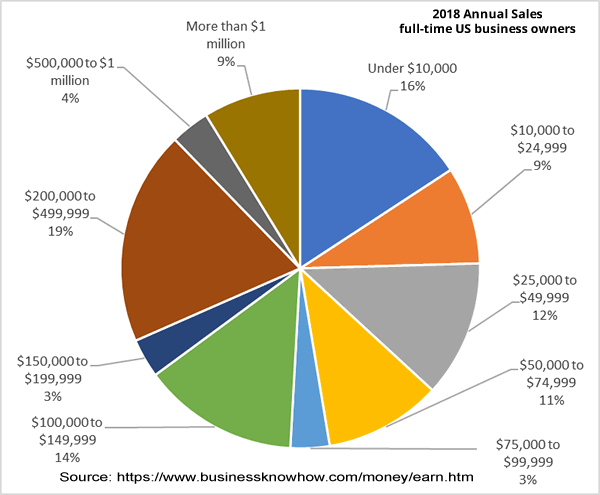The Odds Are Against You! [Small Business]



The competition is fierce! But for you to succeed, you have to know what you are up against because as Marc Cuban said: “If you don’t know more than your competition, they are gonna kick your ass.”
We know many of you come from many different industries and backgrounds however, we are going to use the example of running a small business.
No matter what field you work in you can take the principles we’re going to be talking about and apply them to your own industry. In business, some of you may be familiar with the 80/20 principle in which 80% of your efforts only make 20% of the results because the big money goes to the innovators.
So the opposite is also true, where you get 80% of your results from 20% of your efforts. You just have to know which side of physics you are working from.
Part of my job in consulting with multi Billion Dollar companies is to help them understand the numbers of their business and outsmart their competitors because only once you understand the numbers can you pick the right strategy.
So many businesses are ignorant when it comes to the numbers. This is why you have people who promote a certain tactic like some new social media channel however unless you understand the number the tactic is useless.
The Differences Between Making $73,000 A Year & $1million+

According to PayScale’s 2017 data, the average small business owner income is $73,000 per year and
According to the SBA, the median income for self-employed individuals at an incorporated business was $49,804 and $22,424 for unincorporated firms.
Looking at a nationwide average can be misleading since each state (and even city) has a different cost of living. For clarification, the SBA also breaks down the average income of a business owner by state. For example, their data shows that California small business owners (incorporated) earned $56,142 while Vermont small business owners (incorporated) earned $45,828. For a full list of Small Business Profiles by state, check out the SBA’s website.

According to BusinessKnowHow.com small business economic survey shows
According to an article from https://www.inc.com/news/articles/200604/overworked.html who says that the average small business owner works at least 50 hours a week and 25% of them work more than 60 hours and 70% work weekends. That means the average small business owner is making between $23.39 -to-$28.00 an hour.
According to a study by the US Small Business Administration, in 2015 in the US, small businesses employed 58.9 million people, or 47.5% of the private workforce. For clarification purposes, small business is defined as a company with 100 or fewer employees.
From a different SBA survey, 80% of the 28.1 million small businesses in the United States do not have employees.
The average small business revenue with no employees is $44,000 per year, and the average revenue of a small business with employees is $4.9 million in 2021.
From an article titled SME Operating Performance on the Government of Canada website, margins for a small business operating between 2004 and 2012 were 7%. You will notice a big variance from the chart in the small business net profit margin ranging from as low as 1.5% to as high as 7%. The information obviously varies from year to year based on economic conditions, but 7% net profit operating margin is a high watermark.
Given that 80% of the small businesses don’t have any employees, and the average business owner has $44,000 in revenues, it looks like the average 1-person business makes slightly over $3,000 a year. Even if I were to double the 7% number, we’re still only looking at $6,000 a year in profits, which isn’t exactly a banner number. That is not the average small business profit since that only addresses a one-person company.
If you take the weighted average of all of the businesses in each size category, you’re looking at slightly over $50,000 per year.
You will notice that the profit level really only becomes somewhat significant when the business has between 20 to 99 employees, at which point, the average profit margin is $498,680. Growing a small business to north of 20 employees requires a very different entrepreneurial skillset than the startup skillset, which is why so few businesses ever surpass the $1 million mark.
Even at $1 million in revenue, the profits on average are only $70,000 a year, which is barely above the average employee’s salary level. According to the book, Scaling Up by Verne Harnish, 94% of businesses have less than $1 million in revenues.
Using the above information, and extracting data from another study done by both the US Small Business Association and the Government of Canada, here is the percent of businesses that fall into each category:
To Summarize, and answer the question, what type of profit does the average small business make a year, or, how much do small business owners make, broken down into the categories, you’re looking at:
- 1 employee = $3,800 profit/year
- 2 to 4 employees = $27,090 profit/year
- 5 to 9 employees = $76,600 profit/year
- 10 to 19 employees = $151,480 profit/year
- 20 to 99 employees = $459,680 profit/year
- 100 to 499 employees = $2,854,250 profit/year
Million Dollar Income Earners
Most of today’s millionaires weren’t born into their wealth, research shows.
A study by Fidelity Investments found that 88% of millionaires are self-made millionaires. Overall, the research revealed that current millionaires are, on average, 61 years old with $3.05 million in assets.
However, as we continue throughout this article we will look at the numbers of what high-income small business owners are doing as you will see there are those who are working way harder than they need to and for a lot less money.
A indeepth study on productivity was done by Vilfredo Pareto and De Solla Price that studied the inequality of wealth which found that in any creative endeavor a very small percentage make up the majority of the results which holds true in every area of life including business.
In this example, we’re looking at small businesses but don’t be distracted by the industry were looking at because the principle crosses over into any industry including real estate, youtube videos, or anything you can think of, which is a square root law. In which a very small percentage produce half of the results. If you have 1,000 recruits, 100 produce half of the results.
Running a small business is not unlike any other industry even though industry critics like to claim it has a high failure rate.
Tom Ferry, who is the world’s top trainer for real estate agents reports at his blog https://www.tomferry.com/blog/87-of-all-agents-fail-in-real-estate/ that 87% of real estate agents fail.
In the real estate version of our article “The Odds Are Against You” you will see that the average $100,000 real estate earner is between the age of 51-60 and has been in the business between 11-20 years.
The same holds true for small business owners!
According to the article “Small Business Owners How Much You Should Pay Yourself” from https://www.cnbc.com/2020/02/28/this-is-how-much-to-pay-yourself-as-a-business-owner.html shows that many company founders take no salary in the first years of running a business.
Cardone Ventures shows there are:
- 31 1/2 million small businesses
- 25 million self-employed businesses
- 5.2 million businesses with 2-15 employees
- 630,000 businesses with 15 or more employees
Every year, despite the economy 2/3rds of businesses, closes every 5 years. And the top 3 reasons they give are 1) Not enough demand for the product or service 2) Can’t find good help 3) Can’t get funding.
However, Shark Tanks Robert Herjavec spoke at an Inc, 5000 events entitled: “How Robert Herjavec Escaped Poverty” where he explains that many smaller companies that struggle to get ahead because they believe having a good product is good enough for them to be successful
On the other hand, the more successful companies tend to be more sales-focused
ATTENTION! The following video is provided by a 3rd party vendor. If the video is no longer available it is because the owner of the video or Youtube removed the video from their servers. we apologize for any inconvenience.
Not All Marketing Is Created Equal
Not all marketing is created equal, there are certain marketing methods that will not give you the same results if you would have used certain other marketing methods.
We know many of you come from many different industries and backgrounds however, we are going to use the example of real estate.
ActiveRain conducted a survey of what seperate those real estate agents who are earning $100,000 a year or more from and those they call poor agents thouse earning less than $35,000.
One of the things they learned is that the average 6 figure earner has been in the real estate business for between 11-20 years.
We do not want to look at what helped certain people to become successful but rather what are those things that will give you the best odds of success.
Here’s what we learned from ActiveRain:
Demographics:
- Rich real estate agents tend to be MEN (58% male). Poor real estate agents tended to be WOMEN (60% female). 47% of the survey was male.
- Rich real estate agents have 11-20 years of real estate experience. Poor real estate agents had 4-5 five years of experience. The average was 6-10 years of experience.
- The average age of the respondent was 51-60 years old. S/he is a college grad with moderate technology experience. Age did not matter between rich and poor real estate agents.
What Seems to Matter:
- Rich Real Estate Agents invest 6x more in technology
- Rich Real Estate Agents BROADCAST via social media
- Rich Real Estate Agents upload video to Youtube
- Rich Real Estate Agents spend 10x more on marketing
What Doesn’t Seem to Matter (either it doesn’t matter or everyone is using it poorly):
- Real Estate Listing Websites – (Zillow, Trulia, and Realtor.com)
- Direct Mail
Rich real estate agents invest 6 times as much in technology as poor real estate agents. Every year the average rich real estate agent spends $3,000-5,000 per year on technology, while the poor real estate agent only spends $500-1,000 per year. (see the section “Business Capital) So, for every one
dollar that the poor agent spends on technology, rich agent spends six dollars. Think about this:The average rich real estate spends more money in a month, than some poor real estate agents spend on technology all year.
Where does this spending go?
- A top-notch IDX site: Why? Because a good website with home listings and lead capture is the backbone of any successful online marketing campaign. This might be compared to Click Funnels for small businesses.
- CRM or Lead management systems: CRM’s (customer relationship management systems or a database) are an integral part of their success. This is the most dramatic difference in the survey. Almost twice as many rich real estate agents use a CRM or lead management system than poor real estate agents.
It’s this systematic management of their database that allows rich real estate agents to build a high-volume business. This is the most dramatic and visible difference in the entire survey. - Email Marketing: Rich real estate agents aggressively use email marketing. In fact, they touch their clients more frequently through email marketing than their less successful brethren. Many of them send automated listings via their IDX sites, and they are 54% more likely to use email
newsletter and drip marketing campaigns.
Rich real estate agents are aggressive in using BROADCAST forms of social media to attract clients. What is broadcast social media? Any form of social media which allows a real estate agent or real estate professional to communicate in a broadcast format which is open on the Internet (unlike FaceBook which is only visible to your friends.)
What forms of social media are Rich Real Estate Agents using?
- YouTube and Online Video: We were surprised by this one, as online video has always seemed challenging and
time consuming (from a production and editing standpoint). BUT, rich real estate agents are actively posting videos onYouTube , 78% more than poor real estate agents. - Blogging: Rich real estate agents are actively blogging for search engine optimization and building a content library as a “net” for prospective buyers and sellers. Rich real estate agents are using WordPress (52%), and Blogger (26%) as the most popular blogging sites. Rich real estate agents seem to have a presence on multiple blogging platforms.
- Twitter & LinkedIn: Rich real estate agents tend to use the micro-blogging platform, Twitter
and the business networking site, LinkedIn more actively than poor real estate agents to broadcast their message and generate business referrals.
The rich real estate agent spends 10 times more on marketing and advertising for their business. That may be the most shocking number of all. The rich real estate agent spends $5,000-$10,000 per year on marketing, while the poor real estate agent spends only $500-$1,000 per year. Again, a rich real estate agent is spending more in 2 weeks than some poor real estate agents spend on marketing ALL YEAR!
How are rich real estate agents spending their marketing dollars?
- Hire an Assistant: Top performers leverage their time. 26% of rich real estate agents use an assistant or an agency to help with their marketing, driving traffic to their capture page, while only 11% of poor real estate agents use an assistant. Some of these top performers don’t know SEO from NBC but they realize the value of their time and the importance of hiring experts.
- Internet Marketing: Rich real estate agents prioritize internet marketing and lead generation in general. 2.75 times more rich real estate agents buy traffic to their website from sites like Google, Facebook, and Youtube than poor agents. 2.3 times as many rich real estate agents buy internet leads. Rich real estate agents realize that this investment in their business is likely to pay off because they have the system (IDX website and CRM/lead management system) in place to convert their investment into the business.
- The Local Newspaper & Local Publications: Guess what……..rich real estate agents still advertise in local newspapers. Hard to believe, given all the bad news in the newspaper business. But, if a home buyer or seller is looking for information in the local newspaper, the rich real estate agent is going to be advertising there.
- Door Knocking & Cold Calling: Rich real estate agents DON’T have time for cold calling and door knocking. They leave that to poor real estate agents who
is more likely to hit the streets or the office phone and open up the phone book (shudder, shudder). Rich real estate agents tend to pay for marketing since they have the resources.
When asked,”What is the most effective marketing or advertising that you do?” rich real estate agents answered: 1) Personal referrals and word of mouth, 2) blogging, and 3) professional referrals and business networking.
So what does NOT matter? When we looked at the data of what separates the rich real estate agents from the poor real estate agents, technology, broadcast social media, Email newsletters and Youtube video marketing stuck out. In contrast, what did NOT stick out. This could be that every agent is using them; some could be using them well while the rest are using them poorly. The survey could not tell the difference.
1. Facebook: 90% of real estate agents are using FaceBook. Period. There could be a whole survey on the best ways to use FaceBook which may include paid traffic. But the survey does not show that FaceBook does not sell more houses for the rich real estate agent versus the poor real estate agent.
2. Home Listing Sites: When asked, “Do you advertise or use the following real estate web sites to market your business?” we saw, there was no discernible difference between rich real estate agents and poor real estate agents in their usage of these sites. This may be compared to review sites like Yelp for small businesses.
3. Direct Mail: Over 60% of respondents use direct mail to market their business. That’s the same percentage of respondents using Zillow, Realtor.com
Many small business owners treat social media the same way business owners used the Yellow Pages in the 1970’s.
Think Different
Many enterprises rely on the methods that made them successful in the past but are not as effective today as they once were.
The majority of real estate
We can take these same lessons and apply them into our small businesses.
In 2008 I was hired as a business strategist by a $400 million dollar marketing firm many times working with executives from Multi-Billion Dollar companies to help them adapt to this new economy. The economy had recovered but many people are still hurting because they have not adapted to these changes and are in the midst of the Covid economy.
If Steve Jobs ran (your company) what would he had done differently than what you are doing right now? The mission behind Apple is to “Think Different” if you
Joe Polish calls this the blind leading the blind. He says most people will only look inside their industry to find ideas to grow their
When you start with average anyone can make you better but when you work with those who are already at the top of their game results are a lot less obvious. We look at everything, anything that can give you the slightest edge.
So the difference
Innovators break records in every single industry they work in. I’ve worked with a handful of enterprises earning in excess of $100 million dollars











